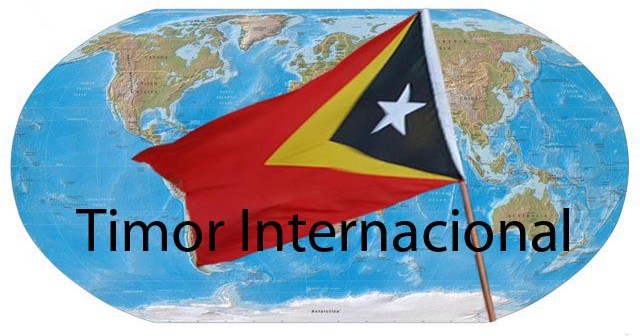 By Lucy Williamson BBC News, Jakarta
By Lucy Williamson BBC News, JakartaMr Ramos Horta has been criticised for being soft on perpetrators of violence
East Timor's President Jose Ramos Horta has accused members of the UN Security Council of "extraordinary hypocrisy".
He said small, post-conflict countries like his could not pursue justice blindly, as some UN states insist.
Dr Ramos Horta and Indonesian leaders say their joint Truth and Friendship Commission went far enough.
But East Timorese and others say it has failed to draw a line under the bloodshed that accompanied Indonesia's withdrawal from East Timor in 1999.
Dr Ramos Horta is a president who has been criticised, both within his country and outside it, for not bringing the orchestrators of East Timor's bloody past to trial.
They have this extraordinary hypocrisy of lecturing us about justice
Jose Ramos Horta He told me he had stopped calling for an international tribunal as soon as Indonesia withdrew from the country nine years ago - due to loyalty to Indonesia as it moved towards democracy, but also out of a pragmatic need for good relations with Timor's giant neighbour.
'Hypocrisy'
And he said the fact that Western governments were still publicly calling for a tribunal was hypocritical.
"If I were to be naive enough to go to them in Washington, Oslo, London, and say please support the resolution in the Security Council to establish an international tribunal, well I would call their bluff - they would not support it," the president said.
"But then they have this extraordinary hypocrisy of lecturing us about justice," Dr Ramos Horta added.
In fact, he said, in fragile, post-conflict states like East Timor, criminal justice could not be pursued blindly - that peace there often had to be bought with reconciliation rather than trials.
And that meant individual victims needed to opt for forgiveness rather than retribution.
In fact, he said, in fragile, post-conflict states like East Timor, criminal justice could not be pursued blindly - that peace there often had to be bought with reconciliation rather than trials.
And that meant individual victims needed to opt for forgiveness rather than retribution.
Hard to forgive
"In our situation forgiveness is a necessity - for an individual who is a victim, to get on with his or her life, but before she or he forgives, truth has to be acknowledged, responsibilities have to be acknowledged, and then the victim feels at ease and can forgive," said Dr Ramos Horta.
But many of Timor's victims disagree.
But many of Timor's victims disagree.
Around 1,500 people were brutally murdered during East Timor's vote for independence in 1999, many others raped and tortured, and around half the population forcibly moved to Indonesia.
Those suspected of orchestrating the violence have never stood trial.
Against this background, President Ramos Horta's stance has been controversial.
Earlier this year, he used his powers of presidential pardon to free several militia members convicted of crimes against humanity during that time.
That move has brought criticism - both from the UN and those in Timor still hoping for justice.
Against this background, President Ramos Horta's stance has been controversial.
Earlier this year, he used his powers of presidential pardon to free several militia members convicted of crimes against humanity during that time.
That move has brought criticism - both from the UN and those in Timor still hoping for justice.
Source: BBC News



